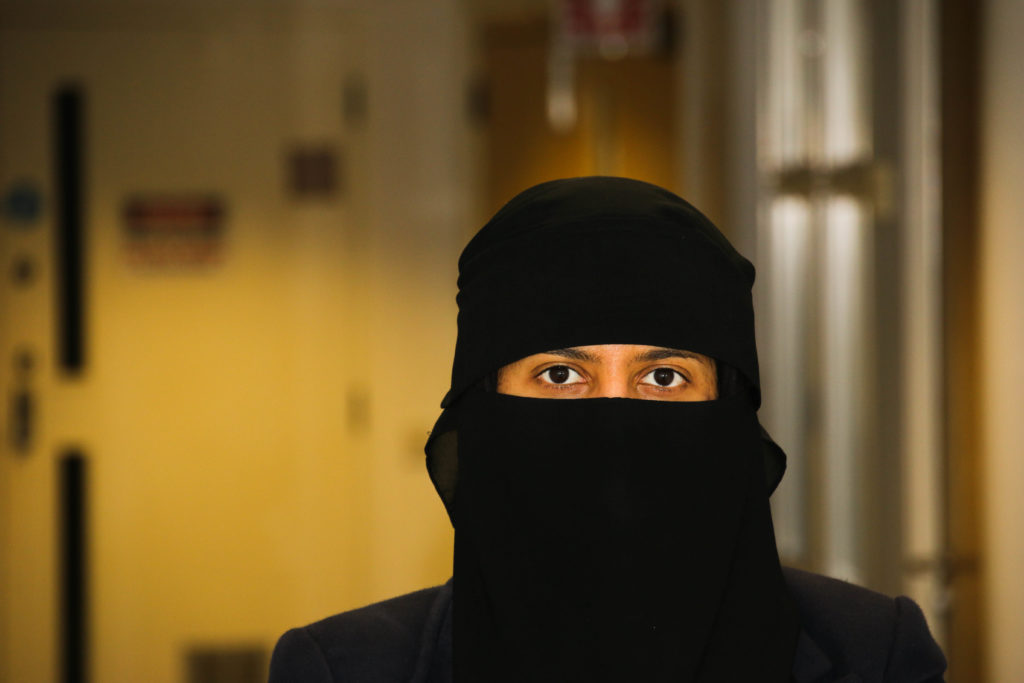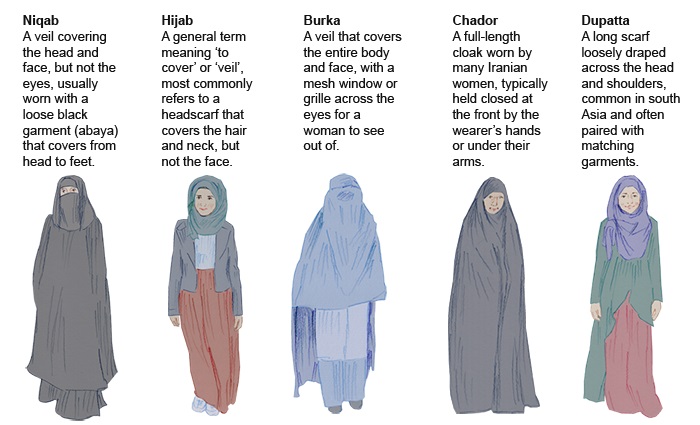Sahar Al-Faifi is running for Assembly Election 2021. If successful, she will be the first Muslim woman entering the Senedd.

Sahar Al-Faifi was holding the DNA sample and heading for another department. As usual, she wore her niqab (face-veil). But then, a patient screamed at her, saying that she was an ISIS.
“That was really shocking. I felt very vulnerable, very unsafe and very unwelcome, ” said Sahar.
Being a Muslim woman standing up for worship is not an easy path in Wales. Someone may call you “bomber” or “terrorist” on the street. Extremist may attempt to remove your niqab. Even you hold two degrees and are shortlisted by all the employers, you have to take off the niqab during the job interview to get a final pass.
Having experienced different stages of racism and Islamophobia, Sahar decided to move from apathy to action. She has left her job as a molecular geneticist in the NHS and become an anti-Islamophobia campaigner and community activist. This February, as a member of Plaid Cymru, she launched her bid to run for Assembly Election in 2021. If successful, she would be the first Muslim woman AM in Wales.
Rebellion
Born in the Middle East, Sahar moved to Cardiff at a young age. She perceives herself as a Cardiffan. “Some of the abuse like saying go back to your country does not make sense to me, because I live in Wales. Wales is part of me and I am part of Wales,” said she.
Growing up in a house of activists, the campaigner said she inherits the rebellious gene from her family. She insisted wearing the niqab at 14 though discouraged by her parents for safety concern. She united the naughty mates to challenge the math teachers failing to teach students well. While studying at Cardiff University, she held the leadership role as a national Muslim students organization.
“I would rather be actively contributing to the common good than just remaining in my apathy watching things happening in front of me without even challenging with them,” said she.
Back in 2018, Sahar received a letter from a right-leaning media organization, accusing her of being extremist and racist. The aggressive words brought her to the hospital. Lying in the sickbed for a couple of days, she tried to figure out why the far-right was attacking her so much.
“The fact that me becoming a vocal and Muslim woman who is proud of her identity is challenging the status quo. That triggered them to attack me because they want to sideline anyone who is not from the majority.”
She was determined to take a step forward. ” The very thing that the far-right want to achieve is for someone like me to stay in the kitchen. I’m not gonna stay in the kitchen. I’m gonna be at the Senedd. It’s the attack that agitated me to be part of the solution rather than the problem.”
Doubt
While supported by the Muslim community, Sahar’s transition into politics was not smooth. She was suspended from Plaid Cymru after attention was drawn to posts she had made on social media that some considered to be anti-semitic.
Sahar deleted the posts and attended anti-semitism training in Cardiff. As her candidacy was renewed by the party, the posts again became a point of contention for some members of Cardiff’s Jewish community. Senior representatives of a local Jewish group urged Plaid Cymru to reconsider the decision “in light of Ms Al-Faifi’s comments and her unrepentant attitude to the whole affair and investigation,” according to WalesOnline’s report.
Responding to the allegation of anti-Semitism, Sahar told Intercardiff that she wants to build a good relationship with everyone including the Jewish community.
“I want to retain my right to criticize the Israeli government and it doesn’t mean that you are anti-Semitic. If we criticize the Saudi government, it doesn’t mean you’re Islamophobic. You are criticizing the human rights violation and the vile policies that they have.”
Feminism
The Islamic face veil has been banned in European countries including Denmark, France, Germany, etc.
Although the face veil ban was ruled out by Theresa May’s government in 2017, 57% of British support a law banning the burka (a kind of Islamic face veil) according to YouGov’s poll.

Besides the unfavourable sentiment from the public, wearing the face veil is perceived by some, including certain feminists, as oppressive towards women. At the Good Morning Britain show, Sahar had a debate over wearing the veil with journalist Rachel Johnson.
“I couldn’t find a feminist justification to wear something that covers your whole face and obliterates your identity. Women have the right to choose what they wear,” said Rachel in the show. But Sahar argued that wearing the niqab is her way to show devotion to God.
“You always have white feminists speaking on behalf of Muslim women, telling them this is what you should do and this is what I shouldn’t. It’s oppressive in a way because if you’re a really true feminist, you should respect my feminist choice of wearing what I want. You don’t invite women wearing this niqab to come and join the discussion,” said She.
.embed-container { position: relative; padding-bottom: 56.25%; height: 0; overflow: hidden; max-width: 100%; } .embed-container iframe, .embed-container object, .embed-container embed { position: absolute; top: 0; left: 0; width: 100%; height: 100%; }Last year, Sahar was invited to Queen’s tea party. She was the only one wearing the niqab in Buckingham Palace. “I was worried about people’s reaction, but all my concerns disappeared as soon as I interacted with people. I even had a conversation with Camila.”
Two years ago, she never thought of joining party politics. Now, she has a team “working their socks off” for her election.
Besides, she is a big fan of skydiving who jumps off the plane at least twice a month. She said the sports makes her fearless. “I feel like flying. I feel free even when gravity is pulling me down,” said she.
